Hi, I am Dr Emily Hardman. I’m an “Integrated Marine Management Manager” for the Blue Belt Programme. It’s my role to help develop, deliver and support an Integrated Marine Management system for the UK Overseas Territories.
Prior to joining the team, I worked for many years on the island of Rodrigues in the western Indian Ocean. I worked with local stakeholders to develop Management Plans for their Marine Protected Areas and a wider Integrated Coastal Zone Management Plan.
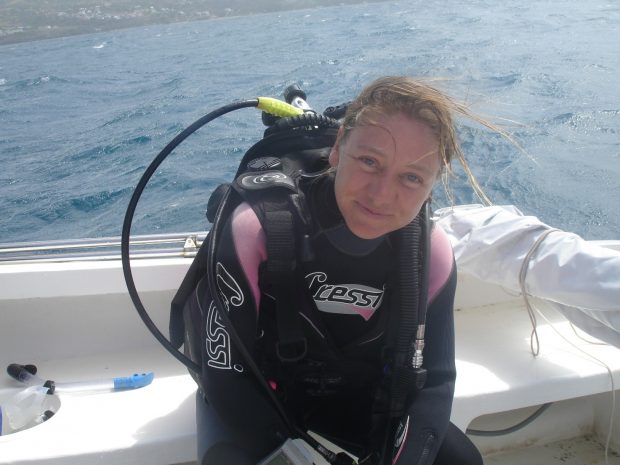
640,000km2 marine area designated
In 2010, a ‘no take’ Marine Protected Area (MPA) which covered the whole of the British Indian Ocean Territory’s 640,000km2 marine area was designated. An interim Conservation Management Framework was produced in 2014. However, the British Indian Ocean Territory (BIOT) Administration is now keen to produce a new, more strategic and ambitious Conservation Management Plan for the Territory.

Management of protected areas
Management Plans are an essential tool to enable the effective management of protected areas. And we know that Management Plans are much more successful if they are developed through a participatory process. In other words, it is vital to involve the people directly affected by the Management Plans. So, as a consequence, the BIOT Administration organised a workshop for key stakeholders to begin the process of developing the Management Plan. The Blue Belt programme was asked to facilitate the event.
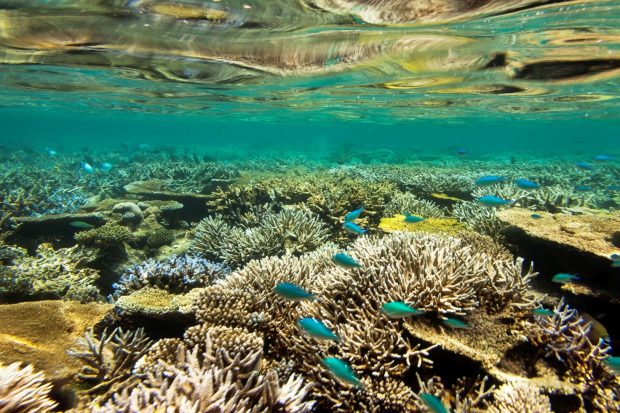
The London Workshop
The workshop was held at a great venue in London Zoo, so we had the strange experience of seeing kangaroos hopping past the window as we talked! It was attended by a wide range of experts who have worked in BIOT for many years including scientists from the Zoological Society for London and the universities of Bangor, Lancaster and Swansea, as well as representatives from the Chagos Conservation Trust, Bertarelli Foundation, MRAG and CORDIO East Africa.
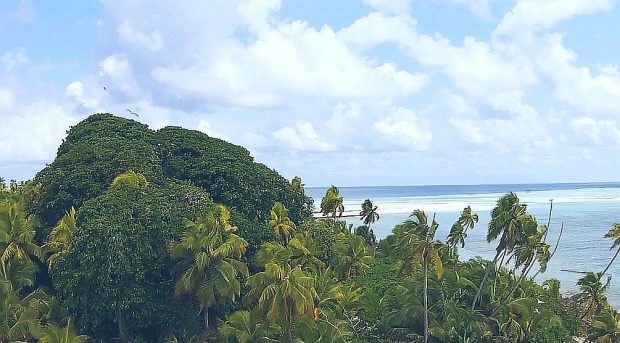
Key habitats and species
During the first morning, I led the group through the management planning process and the different elements that are included within management plans, to set the scene for the workshop activities. This was followed by some really interesting presentations summarising current knowledge of the status of key habitats and species such as coral reefs, fish, sharks, turtles, seabirds and coconut crabs and highlighting the threats from invasive non-native species and illegal, unregulated and unreported (IUU) fishing.
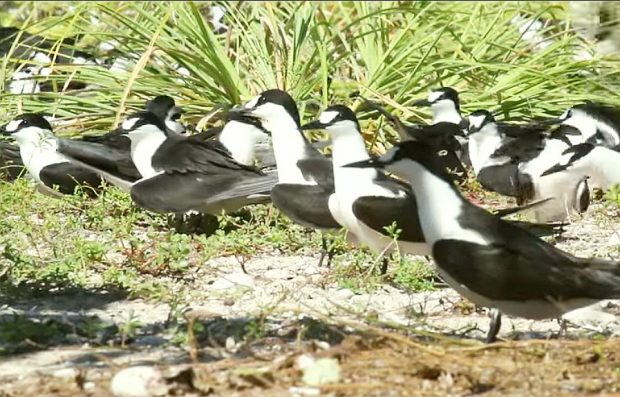
Current and emerging threats
Then we got down to the hard work! We worked in 3 ‘breakout’ groups, facilitated by myself, Dr Martin Collins and Simeon Archer-Rand from Cefas. Our first task was to identify all of the current and emerging threats to the habitats and species in BIOT, as well as reviewing the current management constraints and the upcoming opportunities. Some of the other threats identified included the potential impacts of recreational fishing and yachts, marine litter, pollution and climate change. The first day ended with a discussion around what the long-term vision should be for the Management Plan. On the second day I led some very detailed and challenging discussions to agree SMART management objectives.
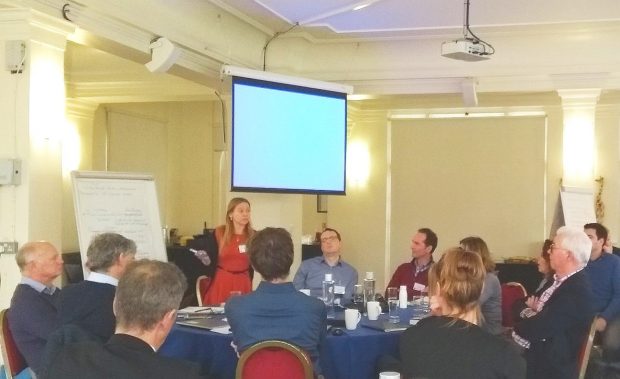
The next 5 years
As a consequence, we were then in a position to develop a range of management strategies and actions that should be implemented over the next 5 years to achieve these objectives. This ‘outcome-based’ management will allow the BIOT Administration to easily evaluate whether the Management Plan is being effective and whether the actions are achieving the desired results. The discussions highlighted some exciting and ambitious ideas for new research and management activities over the next 5 years to reduce the threats from human activities to the marine environment, enabling it to be more resilient to climate change.
The BIOT Administration is now using the outputs from the workshop to develop the Conservation Management Plan with input from the Blue Belt programme and it is hoped that this will be published in autumn this year.
If you would like more information, please contact me: emily.hardman@marinemanagement.org.uk